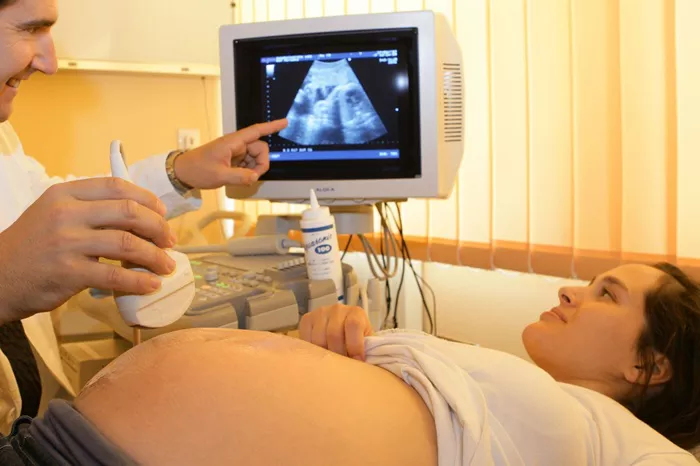AI-powered ultrasound technology is revolutionizing prenatal care in Uganda, where traditional access to such services has been limited. Unlike many countries where ultrasound scans are routine, Uganda faces a scarcity of trained specialists and urban-centric equipment availability, posing challenges for rural expectant mothers.
The introduction of AI-driven ScanNav FetalCheck software is changing this landscape. Developed by Intelligent Ultrasound, the software allows for accurate pregnancy dating and health assessments without the need for specialized sonographers. This innovation enables midwives and nurses to perform scans easily, potentially at the patient’s home using portable devices. This accessibility encourages early attendance at health services, crucial for detecting complications and reducing stillbirths.
Dr. Daniel Lukakamwa from Kawempe National Referral Hospital highlights the software’s impact: “It has motivated pregnant mothers to seek ultrasound scans earlier, crucial for identifying risks like stillbirths.” The technology’s early trials have garnered positive feedback and increased participation in prenatal care research programs.
For Sarah Kyolaba, residing in Kikoni village, this technology provides reassurance during her second pregnancy: “I can monitor my baby’s movements and organ development closely, which gives me peace of mind.” This sentiment echoes across other regions in East Africa, where similar AI applications are being tested to enhance maternal health outcomes.
Dr. Angela Koech, an obstetrician in rural Kenya, emphasizes the importance of accurate gestational age for managing complications like pre-eclampsia effectively. She underscores the challenges faced when mothers present late in pregnancy, highlighting the critical role of timely ultrasound assessments.
SEE ALSO: Can Newborns Hear and See?
While these advancements are promising, challenges such as power shortages persist, impacting the reliability of these technologies in remote settings. Nonetheless, proponents like Dr. Aris Papageorghiou advocate for scaling such innovations to bridge healthcare disparities, acknowledging the need for long-term investments in infrastructure and training to sustain these improvements.
In neighboring countries like Kenya and Ghana, ongoing studies utilizing AI in prenatal care aim to evaluate interventions like aspirin to prevent conditions like pre-eclampsia, underscoring the technology’s potential to transform maternal healthcare across Africa.
As these technologies evolve, their integration into routine maternal care promises to empower healthcare providers and expectant mothers alike, potentially saving lives and ensuring healthier outcomes for pregnancies in underserved communities.


